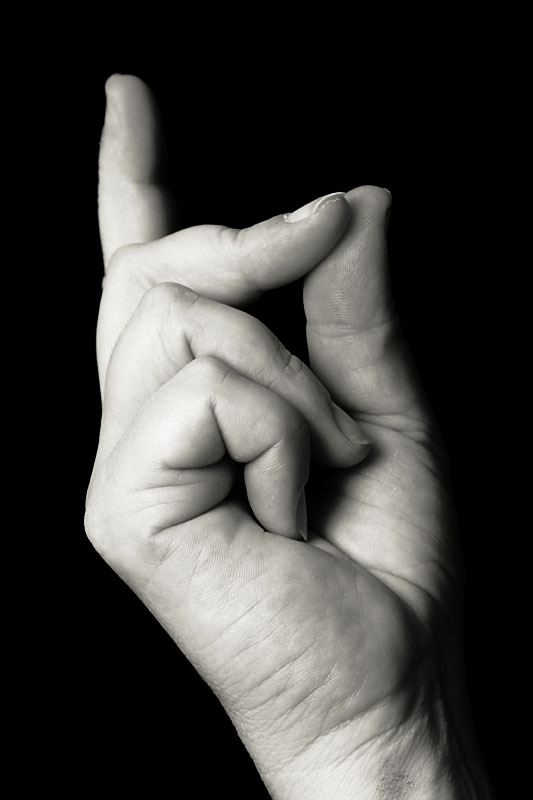 “I was only lengthening the wings on the king’s back.” Jensen explained, in reasonable tones. “I thought that if I could do it – and get away with it – I could provoke an academic discussion about the meaning of the Zuabu Bowl. The longer wings are suggestive of a demon, you see. Not a king.”
“I was only lengthening the wings on the king’s back.” Jensen explained, in reasonable tones. “I thought that if I could do it – and get away with it – I could provoke an academic discussion about the meaning of the Zuabu Bowl. The longer wings are suggestive of a demon, you see. Not a king.”
“The bowl’s been photographed countless times. Everyone would know it’s been changed. Who were you hoping to fool?”
He shrugged but did not argue. Did not even seem to understand. It was as if logic was a seven dollar bill to his mind – untenable, unusable.
Just then, a deputy cracked open the door and poked her head through.
“Superintendent Horowitz? I have an urgent phone call from…”
She waved the girl away without looking at her. “If it’s another important person calling to chew on my ass, tell them to take a metaphorical number, have a metaphorical seat, and then sit the fuck down for a very non-metaphorical wait. I’m interviewing the perp, okay? No disturbances for another hour.”
When they were alone, Dana turned her attention back to him.
“And you’re telling me you’ve done this before? Many times?”
“Yes. All over the world, and in all kinds of places. Archeological digs. Temples Museums. World Heritage sites. It’s incredible how poorly guarded most of them are. And whenever there’s a back turned, or a lock that’s not locked, I get in there and make the world a stranger and more wonderful place.”
“You destroy things. It’s amazing you haven’t been shot by now.”
“No, what’s amazing is the lives I change!” The ridiculous man adopted a Tony Robbins air. “Think of the digs that get funded because of what I do! Think of the journals that stay in print! And think of the countless youngsters who enter academia’s ivory towers because the mysteries I’ve planted at ancient sites…and their brains!”
“No.” She shook her head. “You’re not making this better for yourself at all.”
“I remember how I started down my current path. I was reading about palaeontology, and a strange occurrence in Eastern Colorado. Apparently, Palaeontologist Edward Drinker Cope unearthed a partial vertebra of a massive new dinosaur of the diplodocidae family. If his measurements are accurate and the dinosaur was of the same proportions as other diplodocids, it would have absolutely been the largest creature to ever exist – even bigger than today’s blue whale.
“But nobody knows for sure, because we don’t know where the the vertebra is now – if it even existed. All attempts to locate it have failed, and we can only rely on Cope’s illustrations and his measurements.
“I read about this, and I was suffused with a sense of certainty. It was a hoax, you see. Someone drew up some pictures, and forged Cope’s handwriting and signature. How? Why? I don’t know, but in doing so, he spawned an entire cottage industry trying to locate this giant dinosaur.”
If Dana’s face did not change, it was only because it had hit the bottom of a slippery slope. Complete incredulity.
“I will never know who this man was, but I salute him, and hope to carry on his tradition. I will fake things. I will break things. And in doing so, I will make the world a more exciting and wonderful place.”
“This is ridiculous.”
“It is sublime. It is almost a holy duty. Just last year, I was in Peru, at the old Incan stronghold of Sacsayhuaman. Though there was a sign saying we should not litter, I did leave behind a small rock, inscribed with the syllabary of the Kamakura-era Japan. It was aged to authenticity in my own oven. Come last week, and what do I see?” He jabbed a finger in the air. “A brand spanking new article in PLOS Journal, arguing that there had been trans-Pacific contact between Japan and South America! The author’s knockdown argument? A rock inscribed with Japanese characters at an old relic site. My rock! He wants to finance an expedition to dig up every corpse they can get their hands on and sequence the DNA, and he might just manage it. He should write me a check.”
“Why am I listening to this?”
“I’ve crossed and recrossed the world. I’ve scratched Christian symbols in the palaces of Han Chinese emperors. I’ve planted aged maize in ancient Egyptian tombs. I’ve put Eurasian bird fossils in Australian dig sites. And then I come home, and wait for the mail. I’m subscribed to every relevant journal in existence, and there’s always great delight when my mysteries are uncovered. I long for the sound of the mailman delivering a stack of magazines. That’s my Christmas.”
“Absurd.”
She suddenly found she couldn’t endure this man any more. His enthusiasm seemed to be achieved through vampiric theft of her own.
She summoned a deputy to the office. “Take Mr Jensen and sit him in the holding cell. I have some paperwork to do.”
As he left, he caught one last glimpse of his eyes, at the tidal swells of rapturous happiness contorting his face. A magician loves to perform, even if he does have to reveal his tricks at the end of the show.
She grabbed his psyche file, and started filling it in.
MENTAL DIAGNOSIS? One field asked.
She just wrote “Mystery.”
 “…As economists say, ‘the 100 dollar bills have all been picked off the pavement’. So I’m making it my life’s work to put a few back down. Hey, can I use the bathroom?”
“…As economists say, ‘the 100 dollar bills have all been picked off the pavement’. So I’m making it my life’s work to put a few back down. Hey, can I use the bathroom?”
Can I use the bathroom? Dana considered again the strange man in front of her. He wasn’t handcuffed, because that wasn’t her style. She felt they added an uncomfortable vibe to interrogations. There were no officers flanking him. Same reason.
Maybe these things and his obvious insanity had led him to misunderstand the situation, and think he was in less trouble than he actually was.
“Permission not granted, Mr Jensen.” She snapped. “We’ve now been talking for twenty minutes, and I still don’t understand why you did it. For what it’s worth, I think you’re fucking with me.”
“But it’s really simple,” he babbled excitedly. “Remember being a child, and seeing all the presents under the tree? Remember the mystery?”
Dana was Jewish, but she would not even give this man the dignity of a monkey wrench in the gears.
“And then you unwrapped them. A plastic wristwatch. A cheap Fisher-Price keyboard. Disappointing. You almost wished you could hit rewind and go back to when they were wrapped under the tree, didn’t you? That’s what I do. Most people solve mysteries. I create them. I leave wrapped presents around the world, for experts to find.”
Creating mysteries was a strange phrase for vandalising ancient works of art.
Yakub Jensen had been taken into custody earlier that morning, after he’d been caught defacing a priceless piece of pottery at Brooklyn Museum.
To the media, it was a storm in a teacup. Dana could attest that any storm seems big when you’re in the middle of it.
The Zuabu Bowl was an ancient piece of clay inscribed with imagery in auspice of an ancient Assyrian king. For historians, it was a seminal example of Levantine pottery. For modern day kings and princes, it was a source of national pride. The Brooklyn Museum had spent several million dollars in its acquisition.
Yakub Jensen had been examining the bowl behind its glass case, and had requested that the museum assistant leave him in private for a moment.
“I’m sorry, but your presence distracts.” His exact words.
The assistant – who was doubtless now spit-polishing his resume and ignoring all voicemail – had obeyed, shutting the door behind him. Yakub had been left alone with the Zuabu Bowl for a full five minutes, until a passing visitor had put his ear to the door and heard the chink-chink-chink of a hammer and chisel.
The vandalism had outraged and appalled the archaeological world, and had nearly sparked an international crisis.
For the past six hours since Jensen had been arrested, Dana had been hit with phone call after phone call.
Three museum curators. The head of the Archaeological Institute of America. The vice president of Syria. She’d even had the crown prince of Saudi Arabia – the fucking crown prince of Saudi Arabia – on the phone, jabbering away in remedial English. She’d instinctively held the phone receiver away from her head while talking to him, as if spittle was travelling through thousands of miles of cable to spray in her face.
They’d all said essentially the same thing. Death is too good for this man.
Yakub Jensen was now the meat in a delicate diplomatic sandwich, with various bodies and agencies trying to determine what to do with him. Dana had been summoned to get answers.
And now things were getting really strange.
 “I still believe that a car with the gas needle on empty can run about fifty more miles if you have the right music very loud on the radio.” – Hunter S. Thompson
“I still believe that a car with the gas needle on empty can run about fifty more miles if you have the right music very loud on the radio.” – Hunter S. Thompson
“Tragedy is when I cut my finger. Comedy is when you fall into an open sewer and die.” – Mel Brooks
“I hardly ever talk- words seem such a waste, and they are none of them true. No one has yet invented a language from my point of view.” – Aleister Crowley
“If someone you never met calls you ‘arrogant’, it means he can’t find anything else. Otherwise, he would have called you “wrong’.” – Unknown, via Slate Star Codex
“Lies propagate, that’s what I’m saying. You’ve got to tell more lies to cover them up, lie about every fact that’s connected to the first lie. And if you kept on lying, and you kept on trying to cover it up, sooner or later you’d even have to start lying about the general laws of thought. Like, someone is selling you some kind of alternative medicine that doesn’t work, and any double-blind experimental study will confirm that it doesn’t work. So if someone wants to go on defending the lie, they’ve got to get you to disbelieve in the experimental method. Like, the experimental method is just for merely scientific kinds of medicine, not amazing alternative medicine like theirs. Or a good and virtuous person should believe as strongly as they can, no matter what the evidence says. Or truth doesn’t exist and there’s no such thing as objective reality. […] If you once tell a lie, the truth is ever after your enemy; and there’s a lot of people out there telling lies.” – Eliezer Yudkowsky
“These people don’t see that if you encourage totalitarian methods, the time may come when they will be used against you instead of for you. Make a habit of imprisoning Fascists without trial, and perhaps the process won’t stop at Fascists.” – George Orwell
“I love deadlines. I love the whooshing noise they make as they go by.” – Douglas Adams
“Ask a scientist what he conceives the scientific method to be and he adopts an expression that is at once solemn and shifty-eyed: solemn, because he feels he ought to declare an opinion; shifty-eyed because he is wondering how to conceal the fact that he has no opinion to declare.” – Sir Peter Medawar
“Cats aren’t clean, they’re just covered with cat spit.”
– John S. Nichols
“[I]sn’t it sad to go to your grave without ever wondering why you were born? Who, with such a thought, would not spring from bed, eager to resume discovering the world and rejoicing to be part of it?”
? Richard Dawkins
To describe something as ‘thought provoking’ usually means one can’t think of anything else to say about it. – Anthony Veitch
“I’m on a government watch list. But I’m not interested, because government watches only work twenty minutes out of every hour.” ? Jarod Kintz
“Just as there is a dichotomy in law: ‘innocent until proven guilty’ as opposed to ‘guilty until proven innocent’, let me express my rule as follows: what Mother Nature does is rigorous until proven otherwise; what humans and science do is flawed until proven otherwise.””
“Perhaps we go to the forbidden door or window willingly because we understand that a time comes when we must go whether we want to or not…and not just to look, but to be pushed through. Forever” – Stephen King
 “I was only lengthening the wings on the king’s back.” Jensen explained, in reasonable tones. “I thought that if I could do it – and get away with it – I could provoke an academic discussion about the meaning of the Zuabu Bowl. The longer wings are suggestive of a demon, you see. Not a king.”
“I was only lengthening the wings on the king’s back.” Jensen explained, in reasonable tones. “I thought that if I could do it – and get away with it – I could provoke an academic discussion about the meaning of the Zuabu Bowl. The longer wings are suggestive of a demon, you see. Not a king.”
